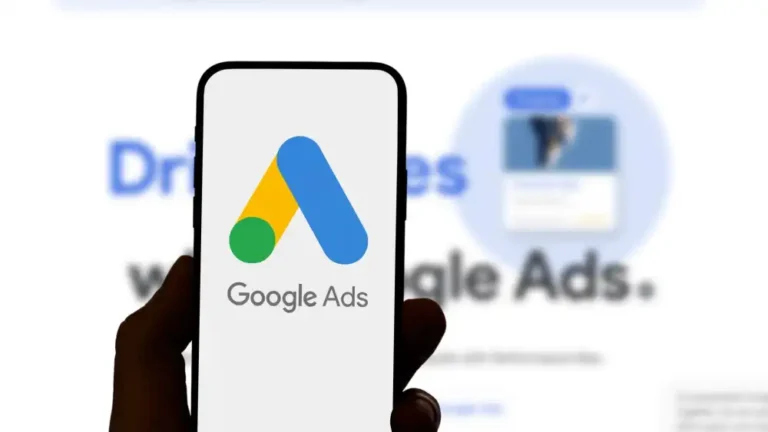Tracking Keyword To Purchase With Google Ads

Introduction to Keyword Tracking in Google Ads
For anyone managing ad spend through Google Ads, you’ve likely hit the same frustrating wall — the metrics just don’t add up. You notice that purchases report astronomically high values or don’t correspond to your real checkout totals. You reach out to support, expecting clarity, and instead get a maze of scripted replies and outsourced representatives who can’t tell you where your data went wrong. It’s not that you’re asking for magic — you’re asking why a $50 product shows as a $5,000 conversion, or why you can’t track something as simple as which keyword triggered which purchase? Somehow, that’s beyond the Google Conversion Team’s scope.
This is why you should work with Host Much. We help you understand, repair, and take full control of your advertising data instead of relying on canned responses from a company that profits from your confusion and automated campaigns.
Setting Up Your Google Ads Account for Effective Tracking
Google provides a polished dashboard, but that’s often where the transparency ends. While your SEO and web design might be amazing, and your ads campaigns can be meticulously curated and structured, Google Ads Tracking requires true technical oversight. Integrating Google Analytics should give clarity — but without proper configuration, it simply amplifies the noise. the outsourced agents can walk you through connecting the accounts but can’t explain why the sales numbers are off by thousands. Good luck explaining to them the importance of tracking keyword to sales. Keywords are with one department, conversion tracking, a separate department.
It makes sense from a conflict of interest standpoint: Google does not want you to see which keywords work and which ones are useless, because then you will remove the useless keywords, lowering their profits from you Google Ads account. It couldn’t be any clearer by than by keeping their Conversion Tracking and Keyword Help departments separated.
At Host Much, we go beyond basic conversion tracking. We implement custom tracking scripts and reporting that connect keyword data directly to your purchase funnel, letting you see which keyword, ad, and landing page actually led to the sale. You can cancel those profit wasting keywords and reallocate the lost revenue back into your preforming campaigns and adgroups, down to the keyword level.
Understanding Keyword to Purchase Conversion Paths
The biggest flaw in Google’s reporting is the gap between the keyword click and the purchase event. Their attribution models often favor impressions or ad clicks rather than real purchasing behavior. This means that your “top performers” might just be costly visitors, not paying customers.
We build proprietary plugins for our clients that store the keyword data in a session once a user visits their site. That session persists through checkout, allowing the client to finally see which individual keyword produced the revenue. This difference changes everything when optimizing campaigns. Our clients often achieve a higher ROI while actually lowering their monthly ad spend — all while continuing to invest in our marketing services.
Defining Goals for Your Google Ads Campaigns
Outsourced support might tell you to “define conversions” or “set up SMART goals,” but rarely will they explain how each goal interacts with keyword-level performance tracking. When conversion values inflate, Google’s AI optimizes for the wrong signals, burning budget on impressions that don’t convert. If a goal conversion is set up for phone, and you only sell online… The result? Higher cost per acquisition, skewed analytics, and frustration that no customer support rep can resolve.
Host Much defines your goals the right way — based on verified data flowing from your web manager or eCommerce platform, not AI assumptions or unclear conversion tags.
The Types of Keywords to Track
Without keyword-level purchase tracking, your campaigns are flying blind. Google’s dashboard may tell you that certain branded or broad match keywords are “high performing,” but that’s based on clicks — not purchases. A further look into what search terms are actually being used can be a shock — for example, you might discover that half your budget is being spent on irrelevant or misleading queries like “free demo,” “cheap alternatives,” or even unrelated terms that loosely match your keywords. Instead of bringing in buyers, these clicks drain your budget without producing a single sale. By tracking each keyword to the exact checkout session, we uncover which broad terms, phrases, and exact match keywords actually bring money in the door. This insight lets you pause non-performing ads and scale the profitable ones confidently.
It’s almost ironic that such visibility isn’t built into Google Ads. But when you think about it, why would it be? It’s a conflict of interest. The less insight you have, the more ads you keep running on auto pilot.
Using Google Ads Keyword Planner for Research (and Reality)
Google Ads Keyword Planner remains a useful starting point for search volume data — but the numbers it produces are optimized for advertising growth, not advertiser profitability. A keyword with 10 monthly searches, might give you 3 monthly sales. Once you’ve gathered your target phrases, our Web Manager will integrate those directly into your Host Much managed site. The result is an ad tracker that lets you see actual purchase results for each keyword on your WooCommerce Orders page.
Setting Up Conversion Tracking in Google Ads
This is the part where most businesses stumble. Google’s own documentation sounds comprehensive, but their tag manager recommendations often leave out the one thing you truly need: persistent keyword identification. Host Much’s solution captures the keyword-to-destination URL relationship on the landing page and keeps it in the session through checkout — accurately linking purchase data back to the ad that drove it. This simple plugin-based tracking method exposes what Google’s system can’t (or won’t): the actual ROI of your advertising spend per keyword.
Even the best ad copy can’t save a campaign when tracking is flawed. You can’t refine what you can’t measure. By aligning ad copy with real user intent and tying each keyword to measurable purchase behavior, we make every dollar accountable. Our web design and analytics integration ensures that ad data, landing pages, and checkout analytics work together in a single, cohesive system.
Analyzing Keyword Performance with Google Ads Reports
Google Ads’ built-in reports look impressive, but their keyword-level purchase accuracy is often misleading. If you’ve ever exported a conversion report and found totals that make no sense, you’re not alone. This happens because conversions are distributed algorithmically — not based on verified data. Host Much solves this by pulling verified keyword-to-purchase data from your own store’s analytics, not Google’s estimation layers.
Once you have accurate keyword-to-purchase data, optimization becomes a strategic process rather than a guessing game. You can finally separate click-bait keywords from those that actually sell. You can increase bids on proven performers, test ad copy that converts, and cut wasted spend — all while maintaining full transparency over your ad ROI.
Automation and AI: Friend or Foe?
Google’s automation tools are designed to simplify — but also to obscure. Their algorithms are optimized to keep your campaigns active, not necessarily efficient. With proper tracking in place, you can leverage automation strategically — but always backed by your own verified keyword-to-purchase data, not the metrics that benefit Google’s ad engine.
Common Pitfalls and Why Support Won’t Fix Them
It’s not uncommon to spend hours chatting with Google Ads support, only to realize they’re unable to explain your own campaign data. Most representatives follow a script and lack the technical depth to address analytics discrepancies. When you press for answers, you’ll likely get redirected to documentation that doesn’t actually solve your problem. Why? Because solving it means reducing your ad spend — and that’s not in Google’s best interest.
At Host Much, we’re not here to sell ads. We’re here to help your business grow. We diagnose, fix, and optimize your tracking stack so that every keyword dollar is traceable and accountable, so you can reallocate that waisted ad spend into the keywords that have proven performance.
Conclusion: Take Back Control of Your Data
If you’ve ever felt powerless staring at Google Ads reports, you’re not alone. The truth is, the system isn’t broken — it’s just designed that way. But with Host Much, you can break free from incomplete data, see exactly where your sales come from, and make decisions based on proof, not guesswork. Whether it’s hosting, SEO, or advanced ad tracking systems, we build solutions that return clarity — and control — back to you.
Ready to fix your ad tracking once and for all? Visit HostMuch.com/contact and schedule your free consultation today.



